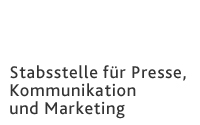Executive Department for
Press, Communication and Marketing
Adolf-Reichwein-Straße 2a Gebäude AVZ (Gebäudeteil AR-NA) 57068 Siegen
Phone: +49 (0)271/740-4915 Fax.: +49 (0)271/740-4911 E-Mail: presse@uni-siegen.de
Finding identity between criminality and luxury cars
How do young people use gangsta rap to form and strengthen their identity? Professor Dr. Bernd Dollinger is participating in a project to investigate this question. He considers it extremely important to talk to the youngsters – and not just talk about them, which is often the case.
Gangsta rappers sing about violence and »bitches« – yet they are among the musicians most listened to by Germany‘s youth. The stereotypes promoted by this genre include luxury cars and jewelry, drug dealing, and guns. »Criminality is depicted in a positive light«, says Prof. Dr. Bernd Dollinger from School II, the Department of Education and Psychology at the University of Siegen. Gangsta rappers often present themselves as criminals and also denigrate other groups. For example, many lyrics are explicitly misogynistic or anti-gay.
Gangsta rappers are among the most-streamed artists »Gangsta rap is extremely popular in Germany despite – or because of – this crossing of boundaries,« says Dollinger. Among the most frequently streamed artists in Germany on Spotify in 2020 were Capital Bra, Samra, Kontra K, Gzuz, Bonez MC, and RAF Camora: All of them gangsta rappers. The genre is popular above all among youngsters and young adults. But what does it do to young people when they listen to music that breaks taboos and glorifies criminality? Dollinger is participating in a new research project directed at finding out how young people listen to gangsta rap and what it means to them. The Deutsche Forschungsgemeinschaft is supporting the project in its Collaborative Research Center »Transformations of the Popular«. The first project phase will run from 2021 to 2024. A research gap: Hardly anybody asks the kids »We‘re studying how youngsters use the music,« says Dollinger. »What is the link with criminality and taboo breaking? What role does sexism play? What does the music mean for identity forming and a sense of belonging to a group?«

Dollinger points out that when this topic is discussed, the tendency is to talk about the music and young people, but not with them. »That‘s why there‘s a mas - sive research gap here.« Therefore, the project aims to find out from young people themselves what drives them, and to dip into their experience. The plan is for various researchers to interact with youth groups over a longer period of time. But do youngsters even want to talk to adults about music and include them in their groups? »We don‘t make any value judgments but stay strictly neutral; that makes it easier,« says Dollinger.
The researchers are closely integrated in the groups in what is known as participatory observation. »This is a particularly demanding method of social research, but we think it‘s the best for this project.« Because gangsta rap is largely an urban phenomenon, the researchers plan to study it in various large cit - ies. The project should have started in January 2021. »Unfortunately, the COVID situation got in the way,« says Dollinger. Many youth centers were closed, and meeting up in groups was banned anyway. That‘s why the project is starting after a delay. Some rappers are criminal, others just pretend An earlier project sparked Dollinger‘s interest in how music affects young people‘s behavior. At the time, the social education expert was analyzing criminal proceedings against youngsters. »Again and again, gangsta rappers and certain songs cropped up in the trials,« he says. However, the question of whether this music really does make young people more likely to commit crimes is just as hotly contested as the old debate about the purported influence of certain computer games on violent behavior.
 »Of course some youngsters who turn to criminality are fans of gangsta rap,« says Dollinger, »but we simply don‘t know whether the music incites criminal acts.« This is partly because hardly any research has been done into how young people deal with the music. »Some youngsters no doubt see the rappers as role models and adopt their attitudes to women or criminality,« says the scientist. »Others see the music as a performance, and their personal values are completely different.« »In my view, listening to music with discriminatory lyrics in itself has nothing to do with the listener‘s own attitude to discrimination,« says the researcher. The same applies to the musicians: »Some of them parade an ugly image, but in reality they‘re loving dads with no criminal record,« says Dollinger. Others live up to their image. For example, they maintain close ties with gangs and clans, and have spent time in prison. Dollinger is the spokesperson of the Research Training Group »The Consequences of Social Services Work,« which was founded in April 2020 at the University of Siegen. His conviction that it‘s important to not only talk about specific groups, but above all to talk with them was reinforced there.
»Of course some youngsters who turn to criminality are fans of gangsta rap,« says Dollinger, »but we simply don‘t know whether the music incites criminal acts.« This is partly because hardly any research has been done into how young people deal with the music. »Some youngsters no doubt see the rappers as role models and adopt their attitudes to women or criminality,« says the scientist. »Others see the music as a performance, and their personal values are completely different.« »In my view, listening to music with discriminatory lyrics in itself has nothing to do with the listener‘s own attitude to discrimination,« says the researcher. The same applies to the musicians: »Some of them parade an ugly image, but in reality they‘re loving dads with no criminal record,« says Dollinger. Others live up to their image. For example, they maintain close ties with gangs and clans, and have spent time in prison. Dollinger is the spokesperson of the Research Training Group »The Consequences of Social Services Work,« which was founded in April 2020 at the University of Siegen. His conviction that it‘s important to not only talk about specific groups, but above all to talk with them was reinforced there.
In the group, PhD students from the disciplines sociology, social education, and psychology conduct research to find out how people who receive institutional social support cope in their lives. »The research fields range from debt counseling to medical aid to unemployment support,« he says. »Time and again, we found that you miss an awful lot if you talk about people, but not with them. That‘s why this aspect is so important to me in my research.«
»Transformations of the Popular« What is popular culture? Is it what the masses like and what rankings and charts measure? Or do other aspects play a part? And how does popular culture change society? In 18 subprojects, researchers from twelve disciplines tackle questions like these in the Collaborative Research Center (CRC) »Transformations of Popular Culture« at the University of Siegen. Topics include evaluations of popular culture, strategies to spread popular culture, and communication mechanisms. The Deutsche Forschungsgemeinschaft (DFG) funds the CRC with a grant of EUR ten million. https://popkultur.uni-siegen.de/sfb1472/


